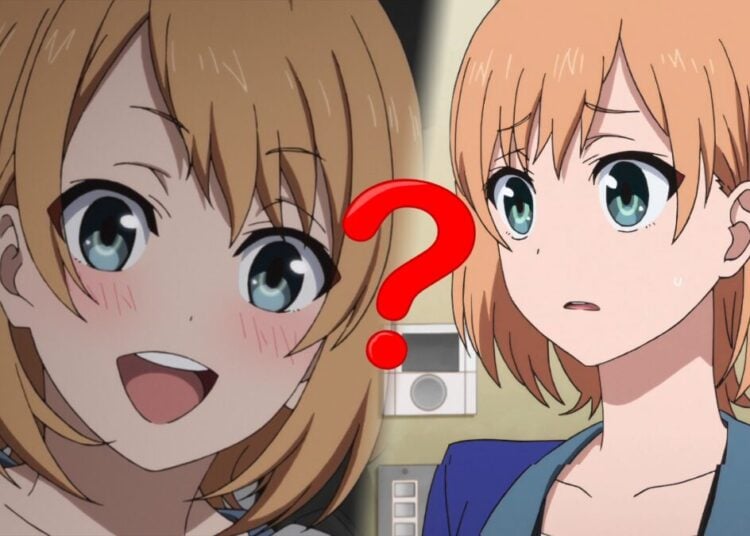I sometimes find myself thinking back to my college days when I first started learning Japanese, and it never fails to make me feel natsukashii (nahts-ka-SHEE), meaning nostalgic. It was 1987 and the Soviet Union was still very much alive, yet year by year people seemed to be growing more aware of Japan instead, as the nation grew in stature in the world. During the first week of classes there were twice as many students wanting to take Japanese 101 than could fit in the room, but the teacher had a great solution to that problem: everyone who wanted to stay in the class had to learn the hiragana writing system within a week, which really got the number of students down to a manageable level in a hurry. In class, the teacher required us to call each other by our last names with the Japanese name suffix -san, e.g. Payne-san, Smith-san, and so on. The system of Japanese name endings is quite complex and interesting, and if you’re curious, I’ll tell you more.
First, there’s -san (“sahn” with a long vowel), the “basic” name suffix, used in polite situations with neighbors or car salesmen or business partners or coworkers, just about anybody. It can be used to refer to organizations as well, and when we order products from distributors in Tokyo they address us collectively as “J-List-san.” The next two most common name endings are -chan and -kun, used for girls and boys respectively, for example Hanako-chan or Taro-kun. Although these terms seem straightforward, there’s a lot going on under the surface that can be hard for a foreigner to grasp, since both name endings imply a certain closeness to the person being referred to, and confusion can ensue if you use them wrong. For example, if you called a girl you don’t know very well by her name with -chan on the end, she might think you’re being cheeky by acting like you’re closer to her than you are, and calling a male you’re good friends with using -san instead of -kun might make him think you don’t really consider him a friend after all. The -chan ending is okay for girls who are below the age of 15 or so, but in office settings it can be considered sekuhara (sexual harassment) to add the ending to a female’s name. Another name ending is senpai, which describes someone who is your senior in a school or company, although the corresponding term kouhai (junior, underclassman) is not used as a name ending. If you watch too much anime like I did, you probably know the name ending -sama, used for addressing high-ranking persons, samurai lords and so on, although in practice this word is almost never used in Japanese outside of certain phrases or when sending formal wedding invitations. There’s an endless number of these name endings — some others you might come across here include senshu (used for professional athletes), yogisha (suspect, added to the names of people who are officially under a police investigation), sensei (used with doctors, teachers and karate instructors), and one of the stranger ones, anaunsaa (announcer), the official name ending when referring to a TV newscaster.
When you’re learning about Japan through anime or manga, it’s always fun to pick up some of the small, unimportant details along the way. One of these I like is called Ai-ai-gasa, which literally means “walking together under an umbrella” but it sounds phonetically like it means “Love Love Umbrella.” Supposedly, the idea of a boy and girl walking in the rain under the same umbrella is quite romantic to the Japanese (although I’ve always been more of a sitting-in-the-car-in-the-rain type of person, myself), and this concept is expressed by a cute little doodle that’s drawn by elementary school students, the Japanese equivalent of a boy and a girl carving their initials in a tree surrounded by a heart or the old “…sittin’ in a tree, K-I-S-S-I-N-G” song. In this modern age that we live in, most cell phone are able to take pictures and overlay any image you like, and one of the options you can select is a cute Ai-ai-gasa umbrella so you can feel a special bond to the person you’re posing with.
Are you looking for a Japanese Girlfriend? Then we’ve got just the T-shirt for you. Our oh-so-wacky T-shirt is the #1 selling design in J-List’s history, and it’s so cool it’s been featured in a “test your geek chic” quiz in Newsweek. The exact translation is “Now accepting applications for a Japanese girlfriend,” and it’s a great potential ice-breaker between you and someone from Japan, even if it’s just to banter about what the T-shirt says. We’ve got alternate versions of the design, including an oh-so-warm hoodie, a “Japanese boyfriend” version, shirts with the message written in a calligraphy brush style, and even a spiffy embroidered hat. Our Japanese Girlfriend T-shirts have even been known to work on a few occasions, and we’ve got a wall in San Diego showing customers who have sent in pictures of their newfound loves.















